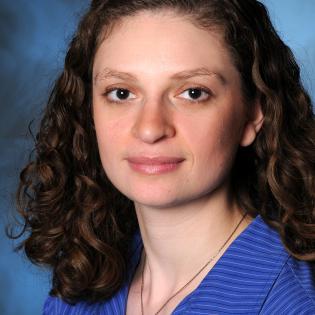Honors Convocation slated for April 19
Calvin College will hold its 51st Honors Convocation at 7:30 pm on Wednesday, April 19 in the college’s Fine Arts Center.
The occasion will celebrate not only the 54 students who will receive gold medallions for graduating with honors from Calvin, but the sizeable contingent of the student body, 1,438-strong, that was featured on the Dean’s List for 2005.
Deborah Kwak, a political science and honors French major, and Calvin chemistry professor Doug Vander Griend will address the honorees and their families as well as faculty and well-wishers. A reception follows the event.
“We are blessed with an amazing number of top students,” says Ken Bratt, professor of classical languages and director of the honors program. “What better way to honor what the students have achieved than by celebrating with them once a year?”
Among this year’s honors graduates are a Fulbright Scholarship recipient who is among a handful of Calvin students who have earned honors in two subjects.
Laura Peterson, an honors graduate in both English and German, recently won a Fulbright Teaching Assistantship to study the literature of Turkish immigrants in German society. Three other students will also graduate Calvin with double honors: Matthew Bloem in English and history, David Bratt in philosophy and Asian studies and Paul Rietema in philosophy and economics.
The variety of student honors represented at the convocation, a Calvin tradition since 1955, are a testament to the growth of the honors program over the last 13 years, Bratt says. In 1993, when he assumed the directorship of the program, Calvin’s honors graduates numbered only two.
“Back then, we had only freshman honors classes in a handful of disciplines,” Bratt says. “The only way a student could graduate with honors was by taking the initiative to set up junior or senior honors projects for him or herself.”
Since that time, Calvin has given more structure to the honors program, strengthening honors requirements in all Calvin disciplines and finding ways to recognize and encourage academic talent early on.
One of these efforts, the McGregor Sophomore Scholars Program, funded by $100,000 grant over four years from the McGregor foundation, provided intentional mentoring of honors students at the crucial midpoint in their college career. (Peterson was a McGregor Sophomore Scholar).
“This was an experiment to build a strong sense of community in a subgroup of the honors program,” Bratt says. Though the McGregor funding has expired this year, Bratt hopes to institutionalize at least some of the benefits of that sophomore mentoring program.
And Peterson is Calvin's third Fulbright recipient in two years of an effort to give more intentional mentoring to students who wish to apply to elite scholarship programs.
However, Bratt is quick to dispel any notion that honors students are cloistered from the general student body as they are in many other colleges. “That sort of elitism would not fly at Calvin,” he says.
Rather, the Calvin honors program is wide open to any applicant who qualifies, and many do. Though Calvin casts a large net—accepting 98 percent of applicants—a large percentage of them are high-performing students.
“It’s one of the unusual things about Calvin,” Bratt says. “One third of our entering class ranks in the top ten percent of college freshmen nationally, as measured by ACT scores. For the last three years, one-third of our incoming class has qualified for honors. We have a good critical mass of top students. It would be a disservice to them to limit the honors program to a small fraction. Our approach is to give them all a shot.”
And even Calvin students who do not choose to graduate with honors often have excellent academic careers, he notes, as represented by the number of Dean’s List honorees this year.
Bratt is looking forward to convocation, an event whose program Calvin has also tweaked in recent years. Short speeches from a student and professor replace the long commencement-type addresses of former years, and all the various honorees are given a chance to be recognized.
“As Calvinists we have always emphasized humility and gratitude to God for our achievements,” he says. “But we also want to say, ‘Let’s make this a true celebration for our students. Let’s give them a hand. I think the students and parents who attend are pleased with the recognition.”







